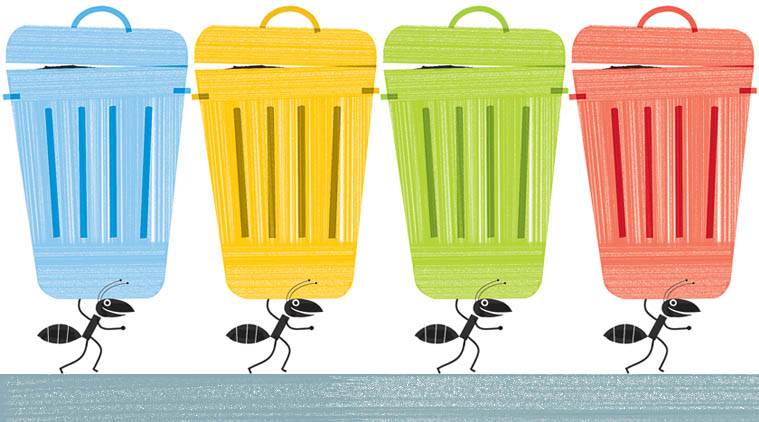Cities at crossroads: Small town, cleaner future
Big cities should learn how to implement waste separation effectively from small, mid-sized Indian cities.

Cynics often point out that old habits die hard. They tell us that it is going to be impossible to get residents of Indian cities to keep different types of waste separate. Yet, we know this is essential for municipalities to find a sustainable solution to the problem of solid waste management.
But there is some good news. Small and mid-size cities and towns of India are showing the way on how to manage solid waste by getting communities to segregate waste and keeping the waste streams separate. In this column we share experience from our visits to some of these cities including, in particular, Suryapet and Karjat. Effective leadership in these cities and towns has found simple and sustainable solutions to the problems of solid waste management which still elude our metropolitan cities.
The earliest and the best success story was of Suryapet, a city in Telangana, located 136 km east of Hyderabad, with a population of a little over one lakh. In 2003-2004, there was no external funding, no NGO and no resident welfare associations. A single individual, S A Khadar, the commissioner of Suryapet municipal corporation, demonstrated personal leadership which made a big difference. He managed all of the Suryapet’s wet and dry waste (32 tonne daily at that time) on a half-acre site within the city, earning a gross income of Rs 1 lakh per month from vermi-composting and recycling. There was no need for a landfill. Khadar saheb began by winning the hearts of his sanitary workers by prompt satisfaction of minor demands, such as granting leave and/or reassignment of workplaces. Next he wooed the residents, one mohalla or street or commercial area at a time, by organising daily meetings on morning rounds from six to nine am before beginning his office work. Residential pockets that gave 100 per cent unmixed waste earned token gifts.
Even more impressive and crucial was the municipal corporation’s visible commitment to transporting segregated wastes for ease of separate processing. The commissioner got banks to fund new tractor-trailers (which can unload waste mechanically) for self-help groups by guaranteeing their monthly repayments to banks from the city payments to their SHGs for waste collection services. The tractors moved punctually and dependably along lanes, stopping at every six-seven houses to collect unmixed waste. The same teams swept the roads, so they had the incentive to do efficient collection without spillovers during the process of collection.
The tractor trailers first offloaded the wet waste which was stabilised for two weeks by stack-composting — composting in vertical heaps that require less space and are piled off the ground for natural air circulation, without manual turning. This was fed to vermi-beds where quality vermicompost was in good demand, earning the municipality Rs 45,000 per month.
The tractor trailers had high wire-mesh compartments for different categories of dry waste which was offloaded at the inner city sorting shed. Eight waste-pickers on city payroll further separated the wastes for daily sale. This is what normally happens informally at the rear of all waste-buyers premises. The sale of recyclables generated additional earnings of Rs 55,000 per month.











.png)




























No hay comentarios:
Publicar un comentario